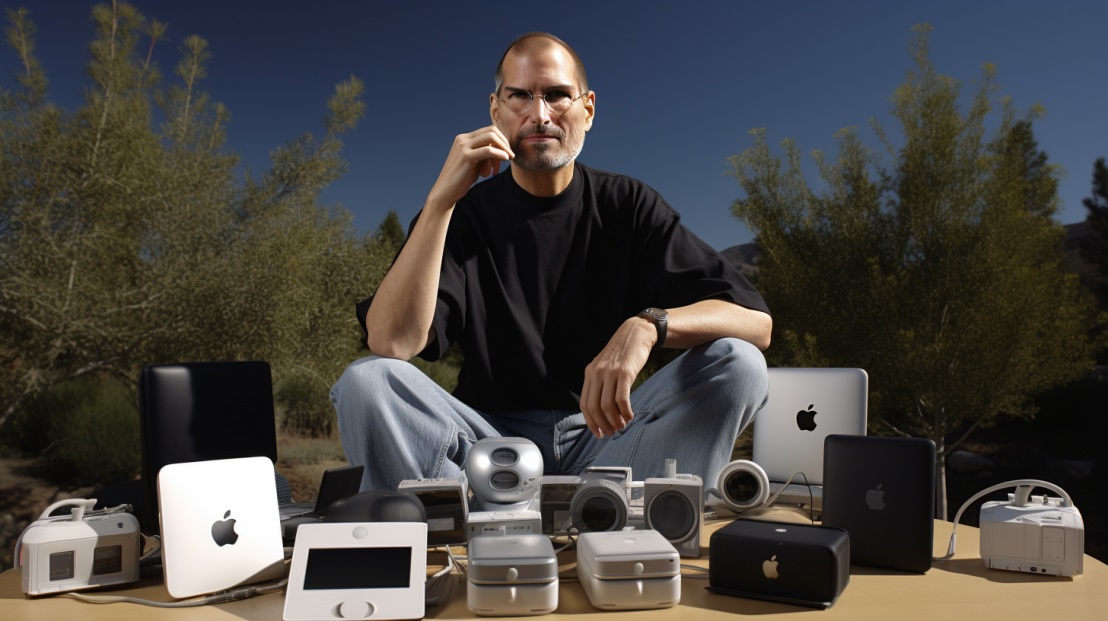Table of Content
The 'Selective Yes' Strategy
The 'Selective Yes' strategy is a crucial approach for entrepreneurs who aim to make intentional choices about how they spend their finite resources. It's about having the foresight to recognize that not every 'good' opportunity is necessarily right for your business's trajectory. By saying 'no' to tasks or opportunities that aren't in harmony with your vision, or that exceed your current capacities, you protect the integrity of your mission and the sustainability of your business.It's this judicious allocation of your 'yes' that can lead to breakthroughs in innovation and operations, setting your venture apart in a sea of overextended competitors.
The impact of this approach is clear in the stories of numerous successful leaders. For instance, consider the CEOs who turned down seemingly lucrative mergers or acquisitions because they stayed true to their long-term vision, or the founders who chose not to chase every trend, but instead doubled down on their niche, perfecting their product and deeply engaging their target market.
These narratives are not just lessons in restraint; they're testaments to the strategic power of discernment. By mastering the art of 'Selective Yes', you're not just averting potential burnout; you're also charting a course for your business that is defined by thoughtful growth and authentic success.
Steve Jobs and the Simplification of Apple’s Product Lineup
Steve Jobs's return to Apple in 1997 marked a turning point for the floundering tech company. Facing a convoluted product line that left consumers bewildered, Jobs took a decisive step to cut through the complexity. He pared down Apple’s offerings from a sprawling range to a manageable handful of core products. This strategic elimination was a masterclass in 'Selective Yes', demonstrating that focus, not variety, would be Apple's pathway to revival.By saying 'no' to the superfluous and dedicating the company's efforts toward a few potential winners, Jobs fostered an environment where design and quality weren’t just aspirations—they were prerequisites. This sharp focus became the fertile ground from which the seeds of Apple's future successes would grow.
Under Jobs's renewed leadership, Apple's streamlined product philosophy blossomed into a series of revolutionary gadgets that redefined entire categories of consumer technology. The launch of the iPod, followed by the iPhone and iPad, were not just successes; they were cultural phenomena that set the template for modern personal technology.
Jobs's ability to reject the status quo of product diversification in favor of deep, innovative focus led to products that offered not just function, but an experience, setting Apple on a path to become one of the most valuable companies in the world.
This legacy of 'saying no' to unleash innovation remains a cornerstone of Apple's identity, influencing how they operate to this day.
Warren Buffett’s Investment Philosophy
Warren Buffett's investment philosophy, often encapsulated in the phrase "value investing," underscores the potency of a discerning and patient approach. Known for his adage of "be fearful when others are greedy, and be greedy when others are fearful," Buffett exemplifies the art of the 'Selective Yes' within the investment realm.He advocates for an investment strategy that is far from impulsive, one that entails saying 'no' to a flurry of passing opportunities in favor of waiting for those that he can assess with a high degree of understanding—what he often refers to as his "circle of competence."
This meticulous selectiveness ensures that when Buffett commits to an investment, he does so with conviction, extensive knowledge, and a clear view of its intrinsic value. It's this very caliber of selectivity that has catapulted him to the pinnacle of financial acumen and success.
Buffett's approach, while simple in theory, requires an ironclad discipline that sets him apart from the frenetic pace of Wall Street's speculative trading. He refrain from the short-term horizon that many investors chase, focusing instead on the long-term potential and fundamental performance of a company. His strategy of investing in undervalued companies with strong potential for growth, and saying 'no' to the market's noise, has not only yielded substantial returns for Berkshire Hathaway but has also taught generations of investors that sometimes, the most powerful move in a world fixated on the immediate is a well-considered 'no.'
Through this lens, Buffett’s strategy reveals an essential truth about success in any venture: it is often the opportunities you pass up that define the opportunities you capture.
Oprah Winfrey’s Focus on Authentic Content
Oprah Winfrey’s decision to conclude "The Oprah Winfrey Show" — a cultural staple and a ratings juggernaut for 25 years — emobody her commitment to authentic content over ratings or conventional success. It was a gamble that bore the hallmark of her career: a fearless 'Selective Yes' to paths that resonate with her personal ethos and a 'no' to the comfortable inertia of established success.By pivoting away from the syndicated talk show format at its peak, Oprah took a significant risk to launch the Oprah Winfrey Network (OWN). Her focus was to create a platform that offered programming aligned with her vision of inspiring and empowering viewers. Despite early challenges, Oprah's steadfast dedication to a network that reflected her values of upliftment and self-improvement eventually paid off, creating a unique space in television that resonated with audiences yearning for more meaningful content.
The success of OWN is an example to the strength of Oprah's personal brand, one that is inseparable from her insistence on authenticity and substance. This has been the guiding principle for her career and business decisions. In an industry often criticized for superficiality, Oprah’s content strategy stands out. It underscores her ability to forge deep connections with her audience, delivering content that not only entertains but also enlightens.
This strategic vision of saying 'no' to short-term gain in favor of long-term impact has not just redefined her legacy—it's also a blueprint for media entrepreneurs who seek to make a difference while also building a sustainable business.
Mark Zuckerberg’s Rejection of Early Buyout Offers
Mark Zuckerberg's decision to declinme a staggering $1 billion offer from Yahoo in 2006 is a classic case of strategic foresight winning over immediate gratification. At a time when Facebook was just a burgeoning social network among many, Zuckerberg’s 'no' seemed to challenge conventional wisdom. It was a move that spoke volumes about his confidence in the social platform's potential and his determination to see his vision come to full fruition.Rather than cashing out, he chose to double down on innovation and growth, a decision that has since turned Facebook, now Meta Platforms Inc., into an almost ubiquitous presence in the digital world. Zuckerberg's conviction and unwavering commitment to what he believed Facebook could become is a striking example of the long-term value that can be generated by choosing the path of independence and saying 'no' to quick exits.
This decision set the stage for Facebook to evolve into more than just a social networking site, but a vast digital empire with deep influences on global culture, media, and even politics. Zuckerberg’s strategic 'no' early on fostered an environment that valued relentless progress and expansion, eventually making Facebook one of the most influential tech companies in the world.
His ability to forgo immediate financial security for a belief in the company’s larger potential not only transformed his life but also altered the tech landscape significantly.
Zuckerberg's choice is a powerful reminder to entrepreneurs that sometimes, the most significant opportunity is not in the offer presented, but in the potential that is yet to be realized.
Elon Musk’s Refusal to Patent Tesla Technologies
Elon Musk’s resolution to refrain from patenting Tesla's electric vehicle technologies was a radical departure from the norm in an industry that fiercely protects its intellectual property. By saying 'no' to patents, Musk essentially invited the world to share in the advancements Tesla had made, embodying a rare openness in the realm of corporate innovation.This was a move based not just on business sharpness but on a principle: the belief that addressing the global challenge of climate change was a collective endeavor that superseded the conventional competitive mindset. Musk viewed the open-source approach as a catalyst for widespread adoption of electric vehicles, hoping to accelerate the industry's transition away from fossil fuels.
His strategy appears to have paid dividends, as Tesla has not only cemented its standing as a frontrunner in the field but has also spurred numerous automotive manufacturers to hasten their development of electric vehicles.
Elon Musk's strategic 'no' to patents has been a game-changer in the push for sustainable energy and transportation. It has challenged the traditional practices of technological protectionism, providing a blueprint for how companies can drive innovation with an open-source ethos.
Tesla's pioneering stance has significantly influenced the automotive industry, making proprietary barriers less common as the sector realizes the value of shared progress.
Tesla’s growth trajectory and its central role in the EV revolution speak to the success of Musk’s unorthodox strategy, demonstrating that opening up a company's innovation vault can, paradoxically, solidify its leadership and drive the entire industry forward.
Conclusion
As startup founders and entrepreneurs, embracing the power of 'no' can be transformative. It's a strategic tool that, when used wisely, can lead to increased focus, accelerated growth, and long-term success. Remember, every 'no' to a distraction is a 'yes' to your vision. As these famous leaders demonstrate, sometimes the opportunities you turn down are just as important as the ones you accept.Leave a comment
Leave a comment, an idea, a related blog post on X (Twitter)X (Twitter)

Feel out of your depth as a leader? Learn how top leaders like Warren Buffett and Elon Musk guide teams without knowing all the answers.

Disruption isn’t a threat; it’s a launchpad for growth. Discover how top executives lead with innovation and stay ahead of the game!

The success of an entrepreneur often begins with a spark of imagination. The concept of the “Pegasus Mind” embodies this idea perfectly. Just as the mythical Pegasus soared through the skies with grace and power, an entrepreneur must use their creativity and vision to rise above the competition.

Drawing on the insights of Stewart D. Friedman, a pioneer in leadership education, this article explores seven distinct leadership types, delving into their characteristics, implementation methods, benefits, drawbacks, and potential misperceptions.

Thinking like a VC isn't just about funding—it's a strategy for success! Dive into how adopting a VC mindset can transform your startup's approach, from risk-taking to networking. Ready to level up?

Prioritizing risks doesn't have to be daunting. Find out how to focus on what really matters and protect your resources.

